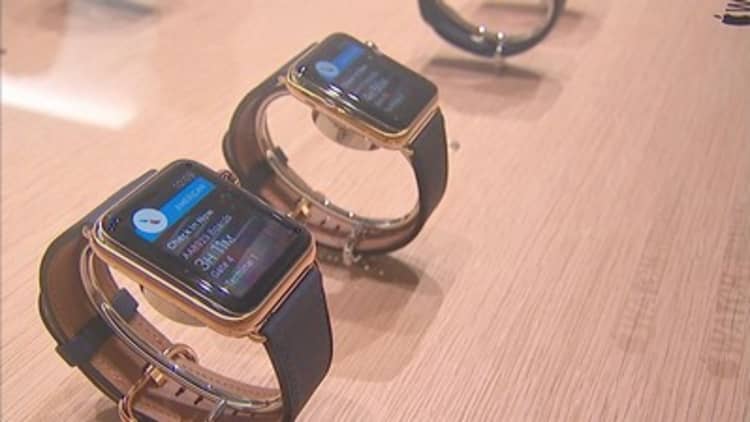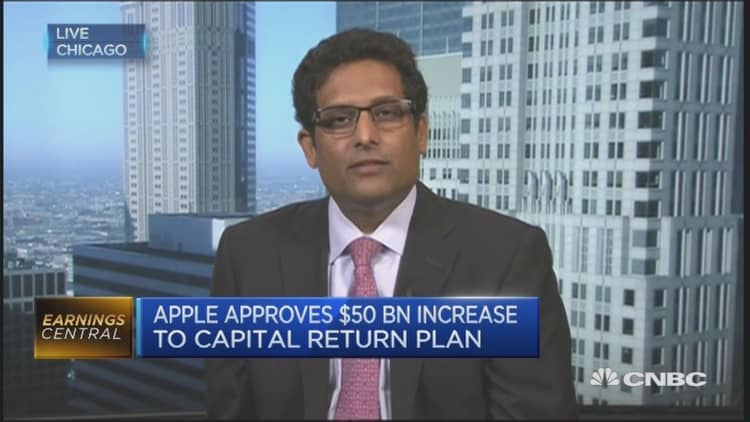
Apple reported another quarter of declining revenues in China but CEO Tim Cook said he remained "very enthusiastic" about the opportunity in the world's largest smartphone market, with analysts suggesting the upcoming iPhones could return the company to growth.
The U.S. technology giant reported fiscal
One area weighing on revenues was China sales, which fell 14 percent from last year to $10.7 billion in Apple's March quarter. On a quarterly basis, China revenues fell 34 percent. Worryingly, the annual dip came despite Apple reporting a 26 percent decline in the fiscal second quarter of 2016, meaning there was an easier comparable.
Still, Cook said that the company had total store revenues in China up 27 percent over the last year, while comparable store revenue rose 7 percent. He pointed to an improvement in the last two fiscal quarters of 2016.

"First half (2017) revenue was down 13 percent year over year, about a third which was attributable to FX (foreign exchange). That's in contrast to a 32 percent revenue decline in the second half of last year," Cook said on an earnings call on Tuesday.
"Our March quarter results were in line with our expectations and similar to the year-over-year performance we experienced in the December quarter. We continue to be very enthusiastic about our opportunity in China."
China revenues declined 12 percent in the December quarter.
Apple has 'hit a ceiling'
But the company has struggled to sustain momentum in China, often seeing a spike in the first quarter of its fiscal year when the full force of its new iPhones is felt. Sales were up on a quarter-on-quarter basis in the fiscal first quarter of 2016 and 2017. But from the March quarter of 2016, Apple has experienced five quarters of year-on-year declines in China revenues.
The problem for Apple is the challenge it faces from Chinese upstarts such as Oppo and Vivo, which are known for making high-spec devices at lower prices, selling them via a network of physical stores across the country. Last year, Oppo saw 122.2 percent year-on-year growth of smartphones in China, with its market share more than doubling to 16.8 percent, IDC data show. Huawei has been making a push in the high-end phone space to challenge Apple and is the number two player in China with a 16.4 percent market share.
Meanwhile, Apple's market share fell to 9.6 percent in 2016 in China, from 13.6 percent the year before.
There's concern that Apple won't see the growth in China that it experienced when it released the iPhone 6 Plus – it's first large screen device.
"China is roughly a 100 million shipment market per quarter, with the premium segment accounting for close to 25 percent of the market on average. Apple has hit a ceiling in terms of the total premium market it can capture," Neil Shah, research director of devices and ecosystems at Counterpoint Research, told CNBC by phone on Wednesday.
"Those who wanted an iPhone already have one, and the upgrade cycle for iPhone has extended in China. Previously they used to have strong sales in older generation iPhones, but that is not happening
China growth ahead?
But Apple is reportedly gearing up to launch three new iPhones later this year with one being a special anniversary edition boasting a souped-up camera and display. This could help it regain favor with Chinese consumers.
"Edge to edge screen technology which maximizes screen size for gaming, video and best suits
"I do think Apple will return to growth in China, and that will come through most clearly I suspect in this March quarter next year."





